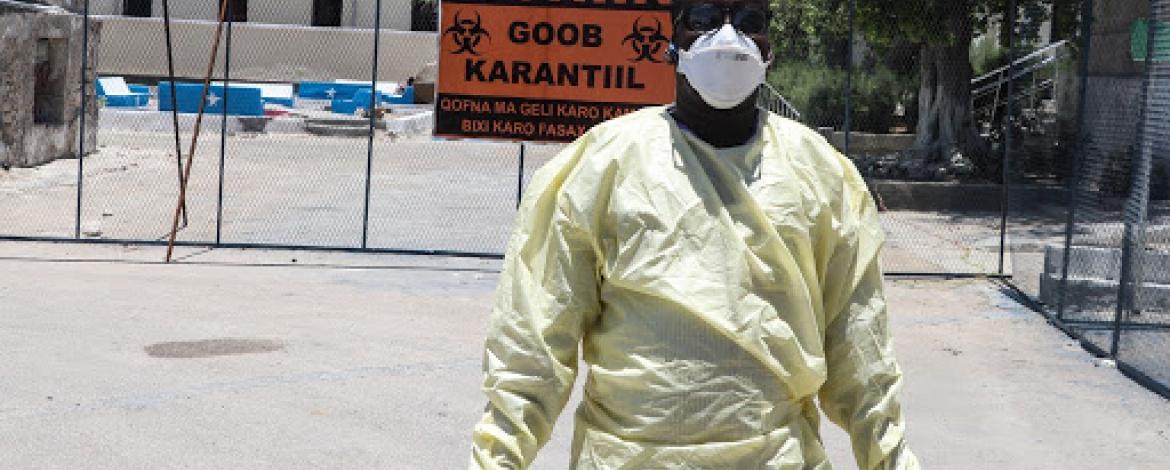Reporters Without Borders (RSF) and the National Union of Somali journalists (NUSOJ) call on the Somali authorities, including federal member states and Somaliland, to refrain from claiming a monopoly of information about the coronavirus crisis and ensure that reporters can fulfil their vital role of informing the public in a free and independent manner.
Access to state-held information about the coronavirus crisis is becoming more and more difficult and closely controlled in Somalia. In Mogadishu, the federal government’s ministry of health and human resources set the tone on 3 March when it summoned journalists to explain what to do and not to do during Covid-19 crisis. The minister told them that Covid-19 related information could only be obtained from the deputy minister and the coronavirus task force spokesperson. But reporters have found it difficult in getting the information they need from these sources. At the same time, NUSOJ and RSF have established that other relevant sources have been told not to talk to journalists. This means that journalists have either been unable to report vital information to the public or have been forced to use pre-recorded video clips and statements prepared by the health ministry.
Similar steps have been taken in Hargeisa, the capital of northwestern Somalia’s self-proclaimed independent state of Somaliland, where Vice-President Abdirahman Abdillahi Sayli’i told journalists on 30 March not to cover the coronavirus crisis “negatively” and to relay “government’s messaging only.”
In Garowe, the capital of the semi-autonomous northeastern region of Puntland, the information minister has told journalist to obtain Covid-19-related information only from Puntland’s newly appointed coronavirus task force.
RSF and NUSOJ call on Somali Prime Minister Hassan Ali Khaire to ensure that the Somali authorities facilitate unfettered access to information about the Covid-19 pandemic, especially as the announced restrictions have been accompanied by aggressive measures in the field.
When SomaliCable TV reporter Abdullahi Farah Nur interviewed members of the public about the coronavirus crisis in Mogadishu on 19 March, he was stopped by the security forces, who manhandled him, accused him of “spreading fear in the community” and told him leave.
“Journalists are frontline workers who are putting their lives at risk in order to carry out an essential public service by informing citizens about the Covid-19 pandemic and its dangers to the public,” NUSOJ secretary general Omar Faruk Osman said. “At times of national crisis, trust and credibility are the government’s most precious assets. As the Somali people are asked to make increasing sacrifices in their daily lives for the greater good of public health, the legitimacy of public decision-making requires a renewed commitment to a free flow of information and transparency in tackling the Covid-19 pandemic.”
Arnaud Froger, the head of RSF’s Africa desk, added: “Even if the authorities remain essential sources of information on which journalists are invited to rely on to cover the epidemic, they cannot claim a monopoly of information on any subject, including this one. Journalists should have unrestricted access to official information while being free to consult other sources they consider credible. If censorship can kill, the independent production of information by professionals constitutes, on the contrary, a major asset in combatting this scourge effectively.”
Somalia is ranked 164th out of 180 countries in RSF’s 2019 World Press Freedom Index.

